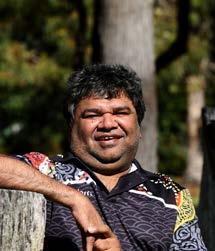
2 minute read
Member News IUIH
from Sector Leader Issue 22 August/September 2021
by Queensland Aboriginal and Islander Health Council (QAIHC)
Birthing in Our Community

Advertisement
Birthing in Our Community (BiOC) was established in 2013 to improve health outcomes by providing culturally appropriate care to women birthing an Indigenous baby.
The program was established on Brisbane’s Southside by the Institute for Urban Indigenous Health (IUIH) and Aboriginal and Torres Strait Islander Community Health Service Brisbane (ATSICHS Brisbane) in partnership with Mater Mothers.
In 2021, IUIH expanded the program to Brisbane’s Northside in partnership with My Midwives.
BiOC integrates expert midwifery services together with the cultural knowledge and clinical expertise of Community Controlled Healthcare Services (CCHSs), enabling a unique approach to service delivery.
In March 2021, a five-year study on BiOC was published in the Lancet Global Health journal and found women taking part in the Indigenousled birthing program were 50 per cent less likely to have a premature baby.
IUIH CEO, Adrian Carson said the study’s findings emphasise the importance of Indigenous-led health services.
“That means these bubs are 50 per cent less likely to experience the risks associated with being born prematurely—things like childhood mortality, experiencing disability, and developing chronic diseases like diabetes, cardiovascular disease or kidney disease later in life.
“It’s a model we would like to see available to all women birthing Aboriginal and Torres Strait Islander babies, so that these outcomes can be replicated nationally.”
A study led by researchers at Charles Darwin University and published in The Lancet Global Health journal earlier this year also found over a seven-year period that mothers were:
more likely to breastfeed
more likely to access antenatal care than those using standard maternity care less likely to need a Caesarian delivery less likely to have their baby admitted to the neonatal care nursery more likely to attend five or more antenatal appointments more likely to exclusively breastfeed on discharge. The BiOC Model connects mothers with a dedicated midwife, a Family Support Worker, transport to and from appointments, social health services, community programs and more, to provide a holistic model of care. BiOC’s social and peer support strategy, including weekly community days, is highly valued with women participating in arts and craft activities, receiving peer support and advice on food preparation. Women join the program while pregnant and graduate after their bub turns six weeks old. After graduating the families continue to be invited into The Hub to join weekly community days and engage with the Early Childhood team. BiOC's success is proof Indigenousled services are integral to reaching the Closing the Gap targets set by the Australian government to achieve by 2031.
You can access the full paper on BiOC at The Lancet Global Health thelancet.com/journals/langlo/ article/PIIS2214-109X(21)00061-9/ fulltext








